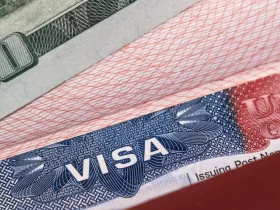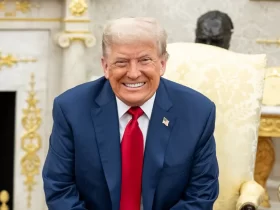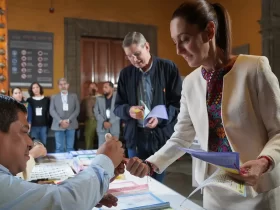Mexico’s President Claudia Sheinbaum has presented an ambitious plan that seeks to reduce the country’s dependence on imports from China by promoting local industry and strengthening trade collaboration with the United States. This project, known as Plan Mexico, focuses on fostering nearshoring through fiscal and strategic incentives to boost domestic content in the production of goods.
Business Relocation Incentives
The centerpiece of Plan Mexico includes tax incentives designed to attract both domestic and foreign investment. Among the measures announced are:
– Immediate deductions on incremental fixed asset investments, prioritizing high-tech, research and development sectors.
– Additional tax benefits of 25% for training workers in collaboration with educational and research institutions.
These provisions will be in effect until October 2030, covering Sheinbaum’s entire six-year term. In addition, the plan does not discriminate by sector or origin of companies, guaranteeing equal opportunities for all investors.
Relaunch of “Hecho en México” (Made in Mexico)

As part of the effort to strengthen the national industry, a relaunch of the “Hecho en México” brand will take place between January 17 and 21. This initiative seeks to reposition Mexican products in the global market and highlight their quality and competitiveness.
Domestic Supplier Development

Between January 20 and 24, specialized working groups will meet to identify the needs of the productive sector. They will analyze current imports, available resources and the incentives needed to establish solid domestic supply chains. This strategic approach will allow for a planned transition to less dependence on imported goods.
A National Unity Project
The Secretary of Economy, Marcelo Ebrard, highlighted Plan Mexico as a “navigation chart” to face the economic and political challenges in the immediate future. Ebrard emphasized that the project has been built collectively, with contributions from businessmen, industrial sectors and local authorities.
During the official presentation at the National Museum of Anthropology, Ebrard emphasized Sheinbaum’s precision and strategic vision in leading this plan. “It is a unique instrument, elaborated with a level of detail and direction rarely seen in public administration,” he commented.
A Promising Future for Mexico
Plan Mexico not only seeks to reduce dependence on Asian imports, but also to position Mexico as a key player in the global marketplace, building on the T-MEC framework. This approach will enable the country to compete effectively with Asian economies, fostering a stronger industrial base and generating opportunities for the Mexican labor force.
In an uncertain global context, this initiative promises to deliver stability and sustainable growth for Mexico, reaffirming its commitment to economic development and international collaboration. With the implementation of this plan, Mexico is emerging as a leader in industrial innovation and a model for other developing economies.








































Leave a Reply